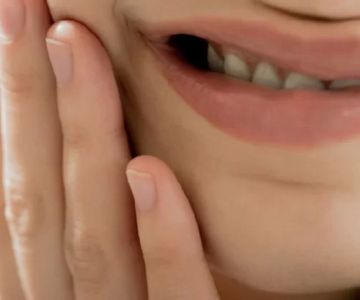Understanding Cigarette Oral Disease and Its Effects
Smoking tobacco is a leading cause of oral health problems in the United States, contributing to a spectrum of conditions commonly referred to as cigarette oral disease. This includes gum disease, tooth decay, oral cancers, and staining of teeth. The chemicals in cigarette smoke impair blood flow to the gums, reduce the immune response, and encourage bacterial growth, all of which can accelerate oral disease progression.
Many smokers wonder, “does brushing fight cigarette oral disease?” While brushing is a fundamental part of oral hygiene, the damage caused by smoking presents unique challenges that brushing alone cannot fully counteract. However, brushing combined with other oral care practices significantly reduces risk and improves oral health outcomes.
1. How Smoking Harms Oral Health
Smoking interferes with the natural healing process of the mouth. Nicotine and tar contribute to dry mouth, limiting saliva that normally helps wash away food particles and neutralize acids. This dry environment promotes plaque buildup and increases the likelihood of gum inflammation and infection.
Moreover, smoking suppresses immune function locally, making it harder for the body to fight infections such as periodontitis. This leads to tissue destruction and bone loss around teeth, potentially resulting in tooth loss if left untreated.
2. The Role of Brushing in Managing Smoking-Related Oral Disease
Brushing your teeth at least twice a day with fluoride toothpaste is essential for removing plaque and surface stains. For smokers, thorough brushing can help mitigate the buildup of harmful bacteria and reduce the severity of gum inflammation. Using a soft-bristled toothbrush and focusing on the gum line helps remove plaque before it hardens into tartar.
However, brushing alone cannot reverse all the damage caused by smoking. Since smoking affects blood flow and immune response, additional dental care like flossing, mouth rinses, and professional cleanings are critical complements to daily brushing.
3. Importance of Professional Dental Care for Smokers
Regular dental visits are vital for smokers to monitor and manage oral health. Professional cleanings remove hardened tartar and can detect early signs of disease that may not be visible or painful yet. Dentists can also recommend personalized care plans tailored to smokers, including more frequent cleanings or specialized products.
A compelling example comes from John, a longtime smoker who noticed persistent gum bleeding despite diligent brushing. After consulting his dentist and committing to quarterly cleanings and improved home care, John saw significant improvements in gum health, demonstrating the value of combined professional and personal care.
4. Additional Oral Hygiene Tips for Smokers
Besides brushing, smokers should consider using antimicrobial mouthwashes to reduce bacteria and freshen breath. Flossing daily is crucial to clean between teeth where brushes can't reach. Chewing sugar-free gum can stimulate saliva flow and help counteract dry mouth symptoms caused by smoking.
Switching to electric toothbrushes may enhance cleaning effectiveness, especially in hard-to-reach areas. Products containing baking soda or whitening agents can also reduce staining, though these should be used cautiously and under professional advice.
5. Quitting Smoking: The Most Effective Way to Protect Oral Health
While brushing and oral care reduce risks, the single most impactful action smokers can take to fight cigarette oral disease is quitting smoking altogether. Studies show that gum tissue and oral health significantly improve after cessation, with reduced inflammation and lowered risk of oral cancers.
Smoking cessation programs combined with dental support provide a holistic approach to oral and overall health improvement. Many dentists offer counseling or referrals to help patients quit smoking and maintain healthier mouths.
6. The Psychological and Social Benefits of Good Oral Hygiene for Smokers
Smoking can cause bad breath, tooth discoloration, and gum disease—all factors that negatively affect self-esteem and social interactions. Maintaining good oral hygiene, including brushing, can improve confidence and encourage positive lifestyle changes.
Linda, a smoker, shared how her commitment to better brushing and dental visits helped reduce embarrassment about her smile and motivated her to seek help quitting smoking. Her story underscores how oral care intertwines with mental well-being and motivation for healthier choices.
Empowering Smokers with Effective Oral Hygiene Strategies
Understanding that brushing is a powerful but partial defense against cigarette oral disease helps smokers take realistic and proactive steps. Combining diligent brushing with flossing, professional care, and, ideally, smoking cessation creates the best chance for preserving oral health.
For those seeking tailored guidance and quality dental services, Dentistry Toothtruth offers expert recommendations and support designed to address the unique challenges smokers face. With the right care, it’s possible to minimize damage, protect your smile, and improve your overall health.



 Westgate Dental Arts3.0 (2 review)
Westgate Dental Arts3.0 (2 review) Coventry Family Dental4.0 (247 review)
Coventry Family Dental4.0 (247 review) Familia Dental3.0 (1028 review)
Familia Dental3.0 (1028 review) Dr. Daniel S. Fife, DDS4.0 (31 review)
Dr. Daniel S. Fife, DDS4.0 (31 review) Dentistry At Suburban Square: Michael I. Wollock, DMD4.0 (1228 review)
Dentistry At Suburban Square: Michael I. Wollock, DMD4.0 (1228 review) Comfort Care Dental4.0 (1156 review)
Comfort Care Dental4.0 (1156 review) The Importance of Oral Health Education During Pregnancy for a Healthy Pregnancy
The Importance of Oral Health Education During Pregnancy for a Healthy Pregnancy Why Skipping Dental Checkups Can Lead to Bigger Oral Health Problems
Why Skipping Dental Checkups Can Lead to Bigger Oral Health Problems Best Tips for Brushing Your Teeth Properly for Healthy Gums: Essential Techniques for Oral Health
Best Tips for Brushing Your Teeth Properly for Healthy Gums: Essential Techniques for Oral Health Advantages of Porcelain Dental Restorations
Advantages of Porcelain Dental Restorations How Can Diabetes Cause Tooth and Gum Problems? Preventing and Managing Oral Health Issues
How Can Diabetes Cause Tooth and Gum Problems? Preventing and Managing Oral Health Issues Healthy Habits for Promoting Good Oral Health and Hygiene: Tips for a Healthy Smile
Healthy Habits for Promoting Good Oral Health and Hygiene: Tips for a Healthy Smile